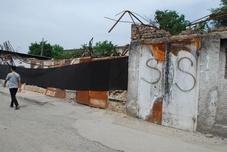Uzbekistan Initiative Papers No. 8, February 2014
By Sarah Kendzior and Noah Tucker
Once separated by geographic borders, Uzbeks in Uzbekistan, Kyrgyzstan, and around the world are now able to share their grievances through the internet and social media.
Perhaps more than any other event since the collapse of the Soviet Union, the reaction to the violence in Southern Kyrgyzstan in June 2010 hardened the lines of the Uzbek ethnic community.
Ethnic Uzbeks appear to increasingly think of themselves as a group transcending the geographic, political, and religious boundaries that once divided them. The central aspect of this communal identity is a feeling of shared victimhood and suffering.
The emergence of Uzbek online communities in which the reaction to the Osh violence took place threatens the Uzbekistani government’s idea of territorial nationalism.
The redefinition of pan-Uzbek identity through shared victimhood also reinforces the idea that being Muslim is a vital part of being Uzbek. This could be one of the most important lasting effects of the June violence, particularly if legal or civic efforts to achieve some kind of justice continue to fail and no secular alternatives can be found.
